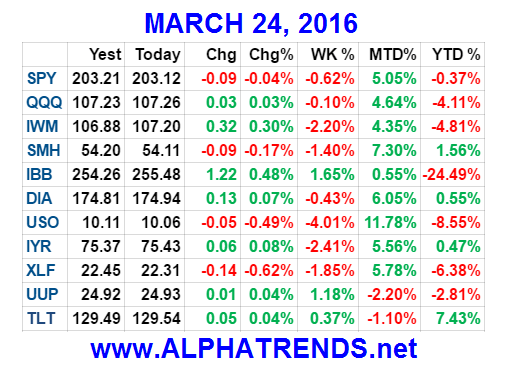
Did you trade $SQ? Here is how we did at Alphatrends
Great insight about technical analysis
This is the charting program I use to display Anchored VWAP
Honored to be on THIS LIST from @HCPG and THIS LIST from @ivanhoff as worthwhile traders to follow on Stocktwits.
The stock market is not a nice place. It is a place where buyers and sellers meet and agree to disagree. The constant battle being waged by the Bulls and the Bears is what makes the stock market a place where fortunes can change hands with the click of a mouse. This is the appeal that attracts most people to trading and it is often the biggest reason for failure.
In order to make a living at trading, the first step is to know the rules for survival. First and foremost, a successful trader or investor must have a plan that outlines well thought out decision-making principles for entry and more importantly, a discipline for selling. Whether to lock in profits or to admit failure at an early stage before a financial disaster occurs, having an exit strategy in place will keep emotions under control so we can make rational sell decisions. Trading is a business and should be run as one, without a viable plan and the courage to implement it, many participants become reckless gamblers with little chance for success. It is better to lose your opinion than your money.
Probably the single most important concept to understanding
how stocks trade is human nature or psychology. Think about what motivates your buy and sell decisions; an earnings report, an analyst recommendation, FDA approval, stock splits? Not really, those are just the catalysts that motivate the greed instinct in you. There is only one reason to buy stocks—to make money! How about selling a stock; is it to lock in profits, to avoid losses, or because another stock has more exciting prospects? Again, those are just catalysts that motivate the fear factor in all of us to take the action of selling. The point is, most investors/traders make their buy and sell decisions based on emotions, not because of a well thought strategy and that is the reason the majority of traders never attain the level of success they strive for.
It has been said that 70% of all traders lose money in the market, why is that figure so high? What are the winning traders doing to take the money from the majority of participants who are wrong? The winning traders understand that human nature repeats itself over and over, the same thing that motivates you to buy and sell motivates others as well. Did you ever sell a stock because you just couldn’t stand to see it decline further only to see it immediately turn around and make a big move without you? Who bought that stock from you? It was probably someone who understood cycles and human nature, they took advantage of your weaknesses—Wall Street is not a nice place. What you do need to do is to understand yourself completely and honestly. If you don’t know who you are, Wall Street is an expensive place to learn.
Once you understand your own motivations to buy and sell, chances are you now know what motivates others as well. People are emotional creatures and tend to act or react to certain sets of conditions in oftentimes predictable ways. A successful trader often finds the most lucrative opportunities in the market when the emotions of greed and fear takeover in the majority of the participants and rational thought and planning go out the window. Fortunately, these actions are recognizable on charts and with some practice; the astute trader can learn to identify these opportunities as they occur. At that point, it is possible to put emotion aside and instead enter the market with a cold and indifferent eye and make a buy or sell just as the emotional level reaches an extreme and a quick profit can be made with little risk.
Isn’t that the goal of a trader, to identify a low-risk entry point, execute a trade and then cash in for a quick profit? Or for an investor to identify a good entry price and hold on for the bulk of a move without allowing the stock to go against them to take away a nice profit? With charts and a trained eye, opportunities like these can be found on a daily basis over and over again.



